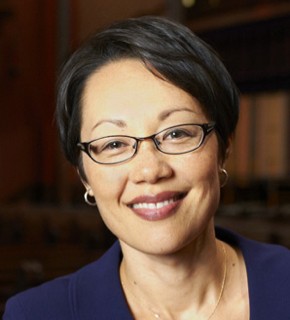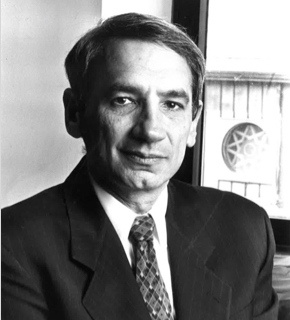Our Senior Rabbis
Our Senior Rabbis
Central Synagogue would not be the bastion of Reform Judaism it is without its dedicated leaders, past and present. On this page you can see the faces of our senior rabbis who have led and those who continue to lead our congregation to form our vibrant synagogue community.
Rabbi Angela Warnick Buchdahl
2014–present
Senior Rabbi: 2014–present
Senior Cantor: 2006–2014
Angela Warnick Buchdahl became Central Synagogue’s first female senior rabbi in 2014. She is the first Asian American to be ordained as a rabbi. Rabbi Buchdahl, who is also ordained as a cantor, joined Central as Senior Cantor in 2006. Prior to Central Synagogue, Rabbi Buchdahl served as an associate rabbi and cantor at Westchester Reform Temple in Scarsdale, New York. Central Synagogue and Rabbi Buchdahl were honored when she was invited to light the Chanukah candles at the White House in 2014.
Rabbi Peter J. Rubinstein
1991–present
Rabbi Emeritus: 2014–present
Senior Rabbi: 1991–2014
Peter J. Rubinstein served as Central Synagogue’s senior rabbi for 23 years. Under his tenure, Central’s presence grew from that of a local New York City synagogue to one with national and international standing and importance as its membership more than doubled, leading to a limit on membership. Rabbi Rubinstein was responsible for overseeing the reconstruction of Central’s Sanctuary following the major fire of 1998, and his leadership held the congregation together during the fire’s tumultuous aftermath. Rabbi Rubinstein stood arm-in-arm with dignitaries at the Sanctuary’s reconsecration on September 9, 2001, only two days before the attacks of 9/11.
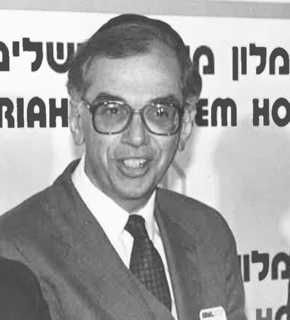
Rabbi Stanley M. Davids
1986–1991
Stanley Davids’ tenure as senior rabbi of Central Synagogue began during Central’s 150th year. His energy and dedication enriched the lives of its congregants. He brought a unique quality and spirit to our services and he instituted adult courses with teachers that dew from our own rabbis and staff as well as outstanding personalities from many fields.
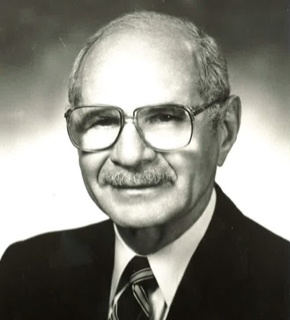
Rabbi Harold I. Saperstein
1985–1986
Harold I. Saperstein served as an interim senior rabbi at Central Synagogue following his retirement as rabbi at Temple Emanu-El of Lynbrook on Long Island in 1980. He was president of the New York Board of Rabbis from 1970–1972, and the New York Association of Reform Rabbis. He was a tireless champion in defense of Israel, Soviet Jewry, and social justice in America.
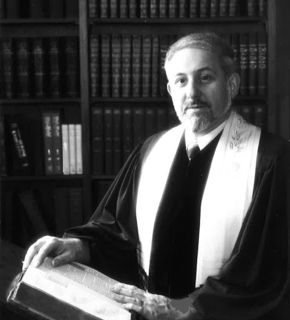
Rabbi Sheldon Zimmerman
1970–1985
Senior Rabbi: 1972–1985
Assistant Rabbi: 1970–1972
In February of 2023, Sheldon Zimmerman was expelled from the Central Conference of American Rabbis, the Reform movement’s Rabbinic body. This followed our congregation’s investigation in 2020/21 that confirmed allegations of predatory sexual behavior. To read our congregational message, please click here.
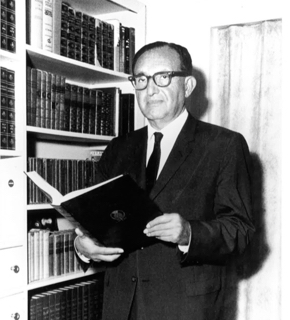
Rabbi Dr. David J. Seligson
1945–1999
Rabbi Emeritus: 1972–1999
Senior Rabbi: 1959–1972
Associate Rabbi: 1945–1959
David J. Seligson was ordained in 1933 in the midst of the Great Depression. After enlisting in the U.S. Army and serving with distinction, Rabbi Seligson returned to the United States, whereupon he was invited by Rabbi Jonah B. Wise to become an assistant rabbi at Central Synagogue in 1945. He subsequently became associate rabbi and then, upon Rabbi Wise’s death, rabbi, serving from 1959 until becoming a rabbi emeritus in 1972.
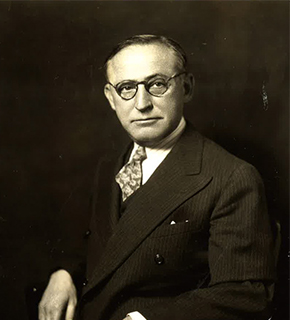
Rabbi Dr. Jonah B. Wise
1926–1959
Jonah B. Wise was the son of Isaac Mayer Wise, founder and architect of American Reform Judaism. His influence on the Jewish community as well as his labors on behalf of the general welfare endeared him to people of all faiths. He reached beyond the synagogue to answer the challenges confronting Jewish people everywhere. He went to Germany in 1933, two months after Hitler came to power, and reported prophetically that Continental Jews were doomed. Rabbi Wise has been credited as the most important single individual responsible for raising humanitarian relief funds that came from America throughout WWII.
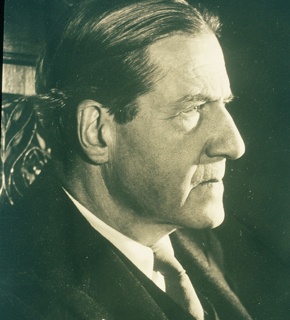
Rabbi Dr. Stephen S. Wise
1923–1925
Stephen S. Wise was born in Budapest and came to the United States when he was 17 months old. His rabbinate was marked as a religious leader concerned deeply for the welfare of the larger community as “the conscience of the state.” During his two-year tenure at Central Synagogue, he oversaw a well-intentioned, but short-lived merger between Central Synagogue and the Free Synagogue (now known as the Stephen Wise Free Synagogue in New York City). In 1922, Rabbi Wise founded the Jewish Institute of Religion, which merged with Hebrew Union College in 1948.
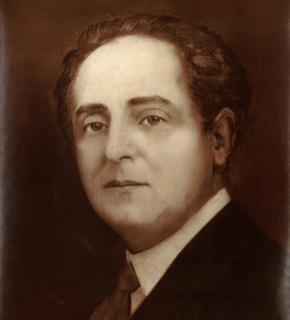
Rabbi Dr. Nathan Krass
1918–1923
First Rabbi of Central Synagogue
Nathan Krass became rabbi of the congregation in 1918, the year in which the combined synagogues of Ahawath Chesed and Shaar Hashomayim became known as Central Synagogue. Unlike the rabbis who preceded him, Rabbi Krass preached exclusively in the English language. He was a staunch supporter of Hebrew Union College and was the first Central Synagogue rabbi to be educated there.
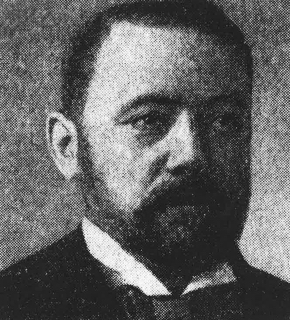
Rabbi Dr. Isaac S. Moses
1901–1919
Rabbi Emeritus: 1918–1919
Senior Rabbi: 1901–1918
Isaac S. Moses came to the merged synagogue of Ahawath Chesed Shaar Hashomayim in 1901. His early years were spent as a religious teacher and then rabbi of a number of pulpits in the Midwest. He was our last rabbi to preach in German, although he also sometimes preached in English.
Rabbi Dr. David Davidson
1895–1901
David Davidson served as rabbi to Congregation Ahawath Chesed, and continued after its merger in 1898 with Shaar Hashomayim until 1901.
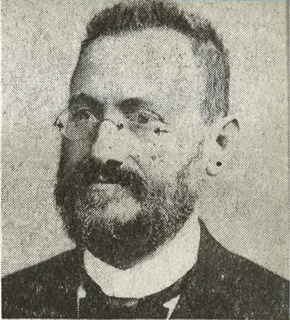
Rabbi Dr. Alexander Kohut
1885–1894
Alexander Kohut came to Ahawath Chesed in 1885. He championed the Conservative position, serving as a professor of Talmudic methodology at the Jewish Theological Seminary. In his desire to make the pages of the Talmud accessible to Jews and non-Jews alike, he compiled a Talmudic lexicon known as Aruch Completum, which was supported by the Ahawath Chesed congregation. Rabbi Kohut was a scion in a family lineage of noteworthy rabbis that included Rabbi Israel Palota (his great-grandfather) and Rabbi Amram aka “The Gaon” who died in Safed, Palestine, where he had spent the last years of his life.
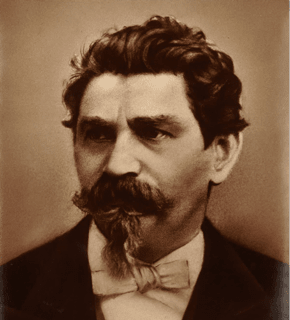
Rabbi Dr. Adolph Huebsch
1866–1884
First Rabbi of Congregation Ahawath Chesed
Adolph Huebsch was the first rabbi of our founding synagogue Ahawath Chesed (Love of Mercy), established in 1846. He immigrated to America in 1865 from Bohemia, where he had fought against tyranny and oppression. He stood with Rabbi Isaac Mayer Wise at the founding of the Hebrew Union College in Cincinnati in 1875. Rabbi Huebsch developed the prayer book used by Ahawath Chesed, as well as by many other congregations. His rabbinate was that of a moderate reformer, who respected the past while being sensitive to issues of his time.
Rabbi Solomon Sonnenschein
1895–1898
Congregation Shaar Hashomayim
Solomon Sonnenschein, a Hungarian American, served as rabbi to the Congregation Shaar Hashomayim, one of Central’s founding synagogues, from 1895 to 1898.
Rabbi Raphael Lasker
1862–1871
Congregation Shaar Hashomayim
Raphael Lasker was born in Zirke (now the Polish city of Sieraków) in 1838, and immigrated to the United States in 1858. He served as rabbi to Congregation Shaar Hashomayim from 1862 to 1871.
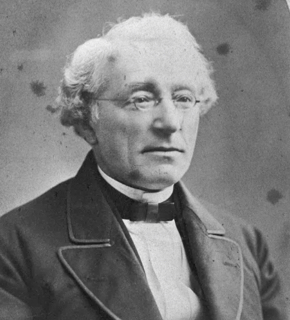
Rabbi Max Lilienthal
1845–1847
First Rabbi of Congregation Shaar Hashomayim
Max Lilienthal became the first rabbi of Congregation Shaar Hashomayim (Gates of Heaven) in 1845, shortly after arriving from Russia where he previously served several Jewish communities. Shaar Hashomayim was established in 1839, and up until Lilienthal’s arrival, had been led by lay leaders. Dr. Lilienthal was considered a “circuit rabbi,” as he was also a rabbi for New York City’s Anshe Chesed and Rodeph Sholom synagogues. As a rabbi he was interested in reforming Jewish observance and practice. In addition to overseeing bar mitzvahs, he introduced conducting confirmation for boys and girls and even a celebration for the 4th of July. In 1855, he went on to become an editor at The American Israelite and serve as rabbi of Congregation Bene Israel in Cincinnati, Ohio. Rabbi Lilienthal was also active in the movement to abolish slavery in the United States.
